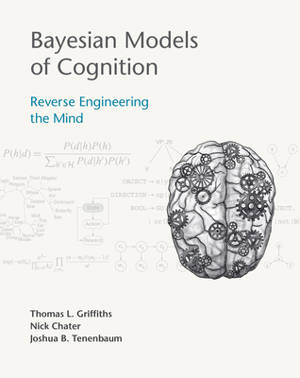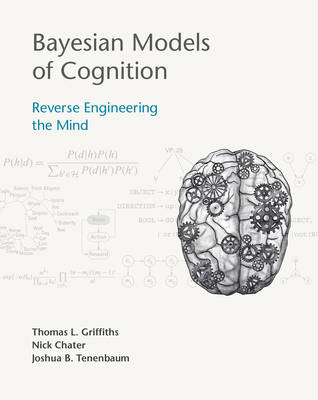
- Afhalen na 1 uur in een winkel met voorraad
- Gratis thuislevering in België vanaf € 30
- Ruim aanbod met 7 miljoen producten
- Afhalen na 1 uur in een winkel met voorraad
- Gratis thuislevering in België vanaf € 30
- Ruim aanbod met 7 miljoen producten
Zoeken
Bayesian Models of Cognition
Reverse Engineering the Mind
Thomas L. Griffiths, Nick Chater
Hardcover | Engels
€ 177,45
+ 354 punten
Omschrijving
The definitive introduction to Bayesian cognitive science, written by pioneers of the field. How does human intelligence work, in engineering terms? How do our minds get so much from so little? Bayesian models of cognition provide a powerful framework for answering these questions by reverse-engineering the mind. This textbook offers an authoritative introduction to Bayesian cognitive science and a unifying theoretical perspective on how the mind works. Part I provides an introduction to the key mathematical ideas and illustrations with examples from the psychological literature, including detailed derivations of specific models and references that can be used to learn more about the underlying principles. Part II details more advanced topics and their applications before engaging with critiques of the reverse-engineering approach. Written by experts at the forefront of new research, this comprehensive text brings the fields of cognitive science and artificial intelligence back together and establishes a firmly grounded mathematical and computational foundation for the understanding of human intelligence.
- The only textbook comprehensively introducing the Bayesian approach to cognition
- Written by pioneers in the field
- Offers cutting-edge coverage of Bayesian cognitive science's research frontiers
- Suitable for advanced undergraduate and graduate students and researchers across the sciences with an interest in the mind, brain, and intelligence
- Features short tutorials and case studies of specific Bayesian models
Specificaties
Betrokkenen
- Auteur(s):
- Uitgeverij:
Inhoud
- Aantal bladzijden:
- 648
- Taal:
- Engels
Eigenschappen
- Productcode (EAN):
- 9780262049412
- Verschijningsdatum:
- 12/11/2024
- Uitvoering:
- Hardcover
- Formaat:
- Genaaid
- Afmetingen:
- 201 mm x 251 mm
- Gewicht:
- 1360 g

Alleen bij Standaard Boekhandel
+ 354 punten op je klantenkaart van Standaard Boekhandel
Beoordelingen
We publiceren alleen reviews die voldoen aan de voorwaarden voor reviews. Bekijk onze voorwaarden voor reviews.











